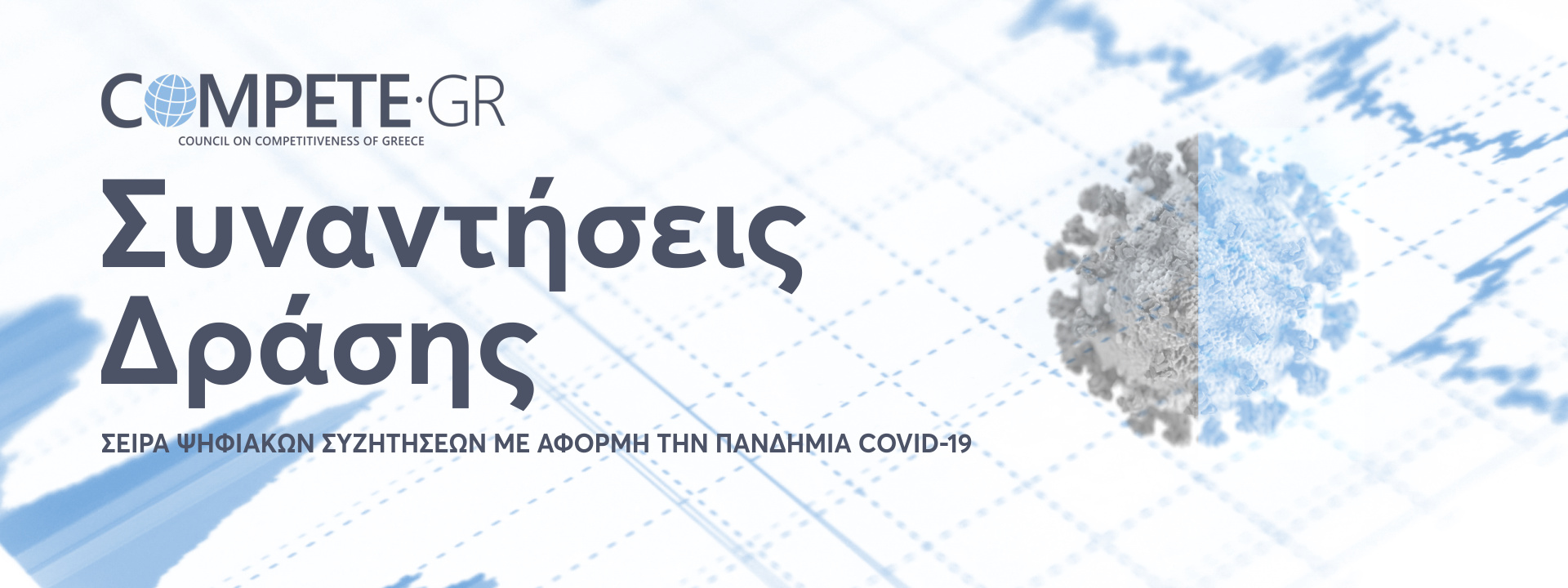KNOWLEDGE SESSIONS – ACTIONABLE DISCUSSIONS
In response to the COVID-19 pandemic, the Council on Competitiveness for Greece (CompeteGR), has been organizing biweekly online knowledge sessions featuring representatives of its member companies, various associations and academia as well as other friends of the Council to discuss specific issues and put forth opinions and proposals.
Each session begins with a brief statement from Council President Mr. Simos Anastasopoulos, followed by a presentation, by Council Executive Director Dr. Venetia Koussia, on Greece’s competitive position according to international reports, and a brief introduction on each of the session’s topics by a knowledgeable and distinguished speaker.
Wednesday, 27 May, 2020
Hospitality and the Tourism Industry in a Globalized Market – Alexandros Angelopoulos, Managing Director, Aldemar Resorts; founding member of CompeteGR
According to the World Tourism Organization (UNWTO) and the World Travel and Tourism Council, Greece ranked 25th in 2019, up from 31st place in 2015. Yet this isn’t enough when tourism accounts for 10% of the country’s annual national income, employs 13% of the workforce, and affects up to 80% of declared annual income in certain regions.
The pandemic has highlighted long-standing issues such as the lack of a national strategy—a national strategy that is on the prime minister’s agenda, allowing for streamlined decisionmaking and a more comprehensive overview. Sustainable tourism growth that doesn’t negatively impact the environment (flora, fauna, natural resources, etc.) and which really builds on the country’s cultural heritage, along with a boost to infrastructure and technologies, is sure to make the tourism product more competitive, adding added value and achieving better yields.
Greece ranked 119th of a total of 140 countries for its business environment and 111th for its price competitiveness—areas than can and must be improved so that we can focus on average per capita spending and not on the number of visitors. Funding and support for tourism in Greece’s limited fiscal space are complex, difficult to solve issues that must be addressed separately. The discussion will have to take into account availability and developments in financing resources and must include all stakeholders.
New groundbreaking proposals for immediate intervention are difficult to formulate. The need is clear for an innovative national tourism strategy that takes a holistic approach making it possible to avoid repeating the usual state of having to put out fires.


 Programs & Events
Programs & Events Engage with the Council
Engage with the Council Our Blog
Our Blog Contact us
Contact us
